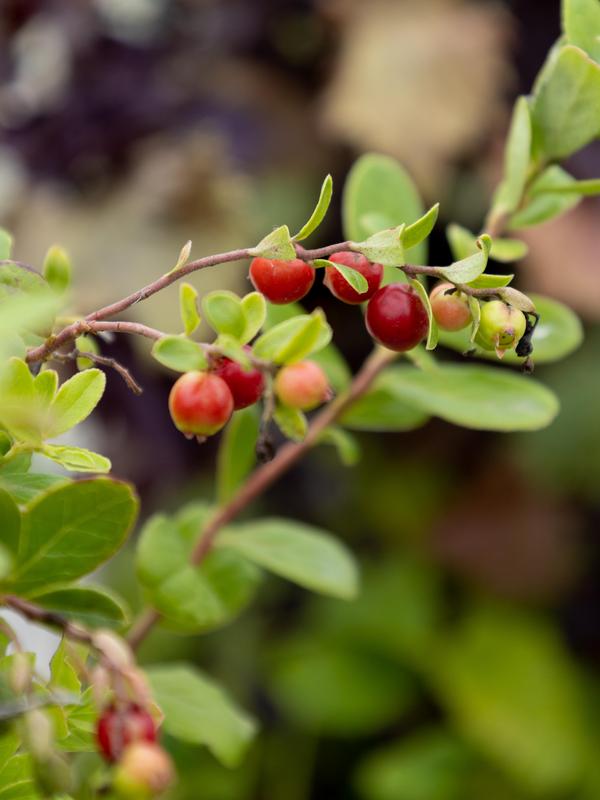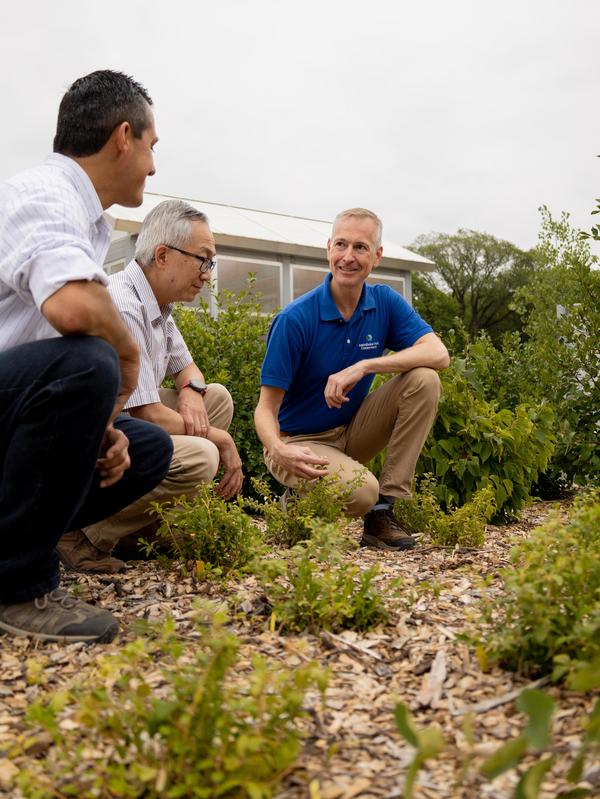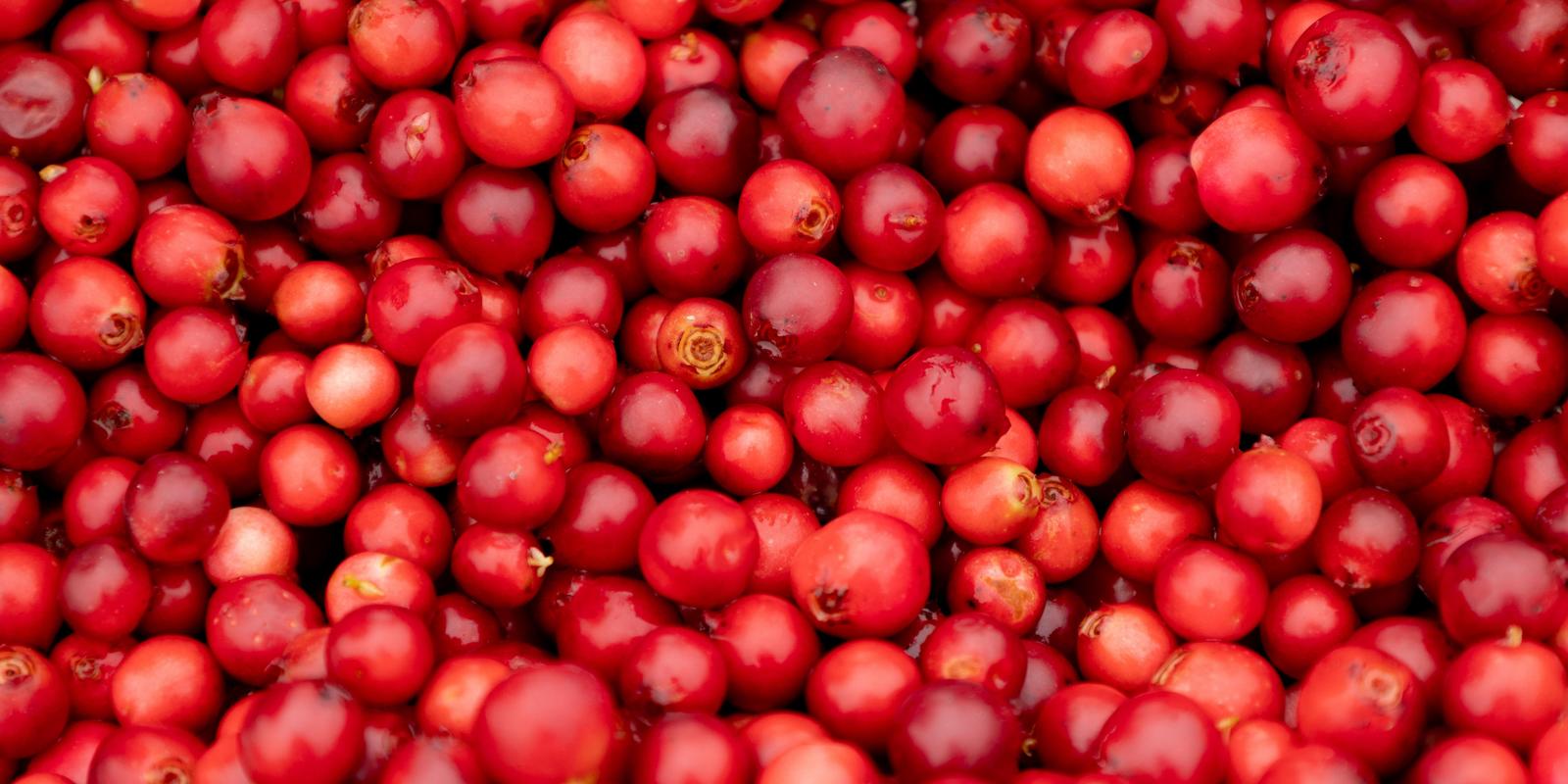This summer, we had an exciting opportunity to grow lingonberries in the Kitchen Garden at The Leaf as part of a partnership with the Canadian Centre for Agricultural Research in Health & Medicine (CCARM). The lingonberry may sound quite foreign, but this native, nutritious wild berry from the north could be grown in your backyard.
These small, red berries thrive in the boreal forest and Arctic tundra across the Northern Hemisphere – from Europe and Asia to North America and have been consumed as food in northern and eastern Europe and by Indigenous peoples in Canada. Recently, they have caught the attention of researchers for their incredible health benefits and potential as a Canadian crop.
Surprisingly, while they're popular in Scandinavian countries and even grace the Winnipeg IKEA menu, lingonberries aren't widely known about or grown commercially for Canadian consumers.
At The Leaf, we're delighted to introduce these berries to our visitors. The Kitchen Garden now features 50 lingonberry plants, thanks to a donation from food science researchers at CCARM and Agriculture and Agri-Food Canada’s Research and Development Centre in Morden.
Dr. Chris Siow, CCARM food scientist located at the Albrechtsen Research Centre at St. Boniface Hospital, has been studying the multitude of health properties possessed by lingonberries for over 15 years.
"This berry from the north has untapped potential as a versatile, flavourful, and nutritious approach to maintaining kidney health and reducing inflammation, as shown by our research,” he explains. “It is three times richer in antioxidants than blueberries or cranberries, and we hope Canadians can one day buy Manitoba-grown lingonberries as easily as other berries for their smoothies, baking, jams and jellies.”
By planting these berries within the Gardens at The Leaf, we're introducing a diverse range of visitors – from gardening enthusiasts and food lovers to culinary students – to the world of lingonberries.



The plants donated to the Park are a European variety acclimatized to grow in southern Manitoba's conditions. Dr. Siow, alongside his colleague Oscar Molina, is working on developing a hybrid lingonberry, merging the higher yield of the European variety with the antioxidant-rich wild lingonberries found in northern Canada.
“Right now, there are no commercial growers of lingonberries in Manitoba, but we hope that will change soon,” explained Molina, who oversees the lingonberry test plots at AAFC’s Research and Development Centre in Morden.
The lingonberry bushes, planted in late June, are settling in well within their new home at the Kitchen Garden along with many other varieties of vegetables, fruits, herbs, and other edible plants.
"In the Kitchen Garden, we explore the connection between nature and culture through food and cuisine,” said Gerald Dieleman, our Senior Director of Horticulture here at the Park. “This includes showcasing a variety of fruits, vegetables, herbs, and other edible plants that can be grown in Manitoba. We are very pleased to be able to share the story of the lingonberry with Park visitors.”
We hope next season will bring us a harvest, allowing us to incorporate these native gems into our Park's restaurants and raise awareness about this incredible plant species.

The next time you explore the Gardens at The Leaf, don't miss a visit to the Kitchen Garden and keep an eye out for these small but mighty lingonberries!
Want to learn more? Check out A Guide to Growing Lingonberries from Agriculture and Agri-Food Canada.





